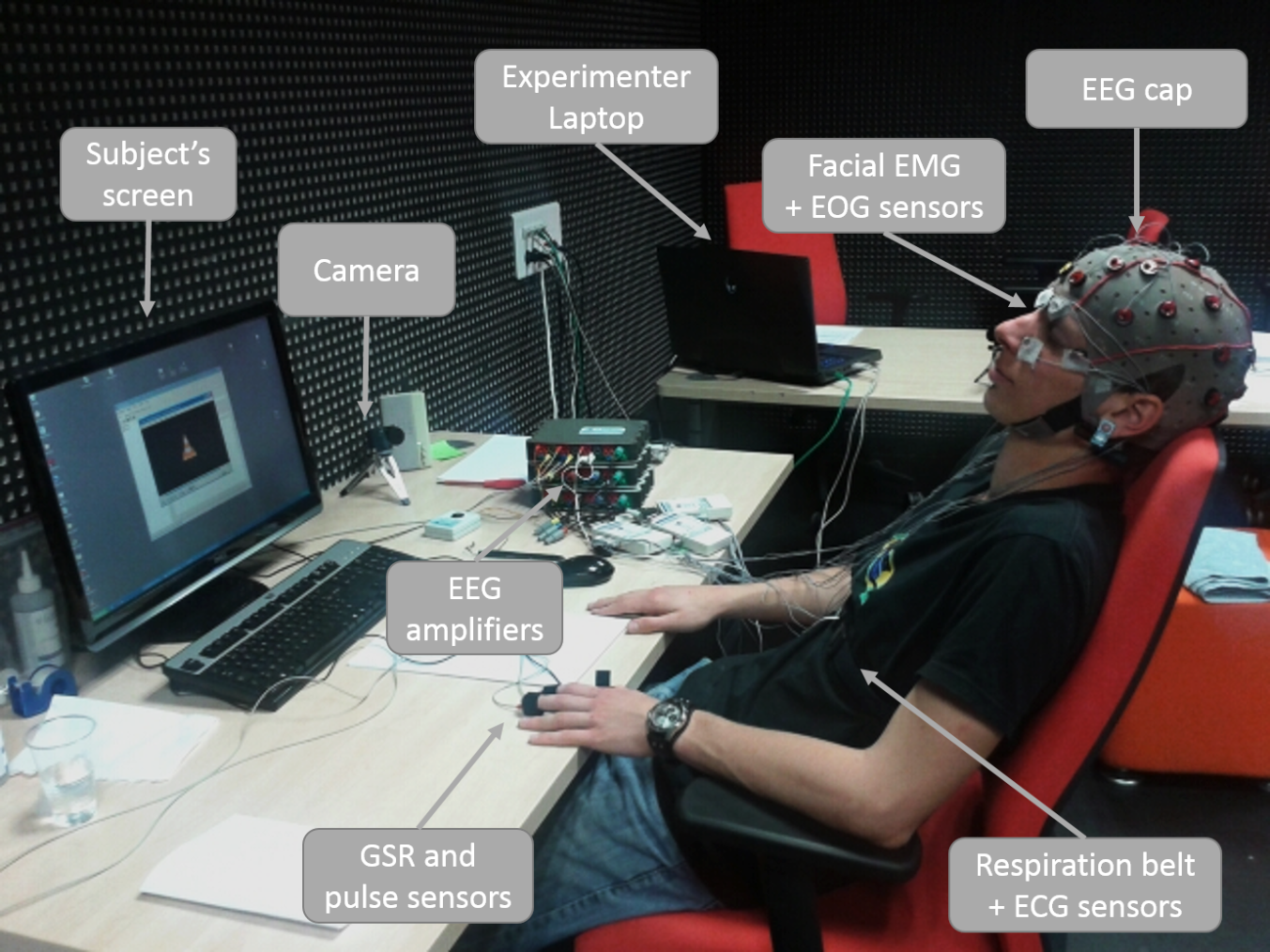Section: New Results
Inducing, measuring and estimating mental and psychosocial stress from physiological signals
Participants : Christian Mühl, Camille Jeunet, Fabien Lotte.
Stress is a major societal issue with negative impacts on health and economy. Physiological computing offers a continuous, direct, and unobtrusive method for stress level assessment and computer-assisted stress management. However, stress is a complex construct and its physiology can vary depending on its source, for example cognitive load or social evaluation. To study the feasibility of physiology-based load-invariant psychosocial stress-detection, we designed a stress-induction protocol able to independently vary the relevant types of psychophysiological activity: mental and psychosocial stress. In [27] , [17] , we validate the efficacy of our protocol to induce psychosocial and mental stress. Our participants (N=24) had to perform a cognitive task associated with two workload conditions (low/high mental stress), in two contexts (low/high psychosocial stress), during which we recorded subject’s self-reports, behavior, physiology and neurophysiology. Questionnaires showed that the subjectively perceived level of anxiety varied with the psychosocial stress induction, while perceived arousal and mental effort levels vary with mental stress induction. Behavior and physiology corroborated the validity of our protocol further. Heart rate and skin conductance globally increased after psychosocial stress induction relative to the non-stressful condition. Moreover, we demonstrated that higher workload tasks (mental stress) led to decrease in performance and a marked increase of heart rate.
Based on this protocol, we also explored the effect of stress on workload estimation. Workload estimation from electroencephalographic signals (EEG) offers a highly sensitive tool to adapt the human-computer interaction to the user state. To create systems that reliably work in the complexity of the real world, a robustness against contextual changes (e.g., mood), has to be achieved. To study the resilience of state-of-the-art EEG-based workload classification against stress, we test the capability of the workload classifier to generalize across affective contexts (stress/non-stress). We show that the classifier is able to transfer between affective contexts, though performance suffers. However, cross-context training is a simple and powerful remedy allowing the extraction of features more resilient to task-unrelated variations in signal characteristics, leading to a performance comparable to within-context training and testing.



